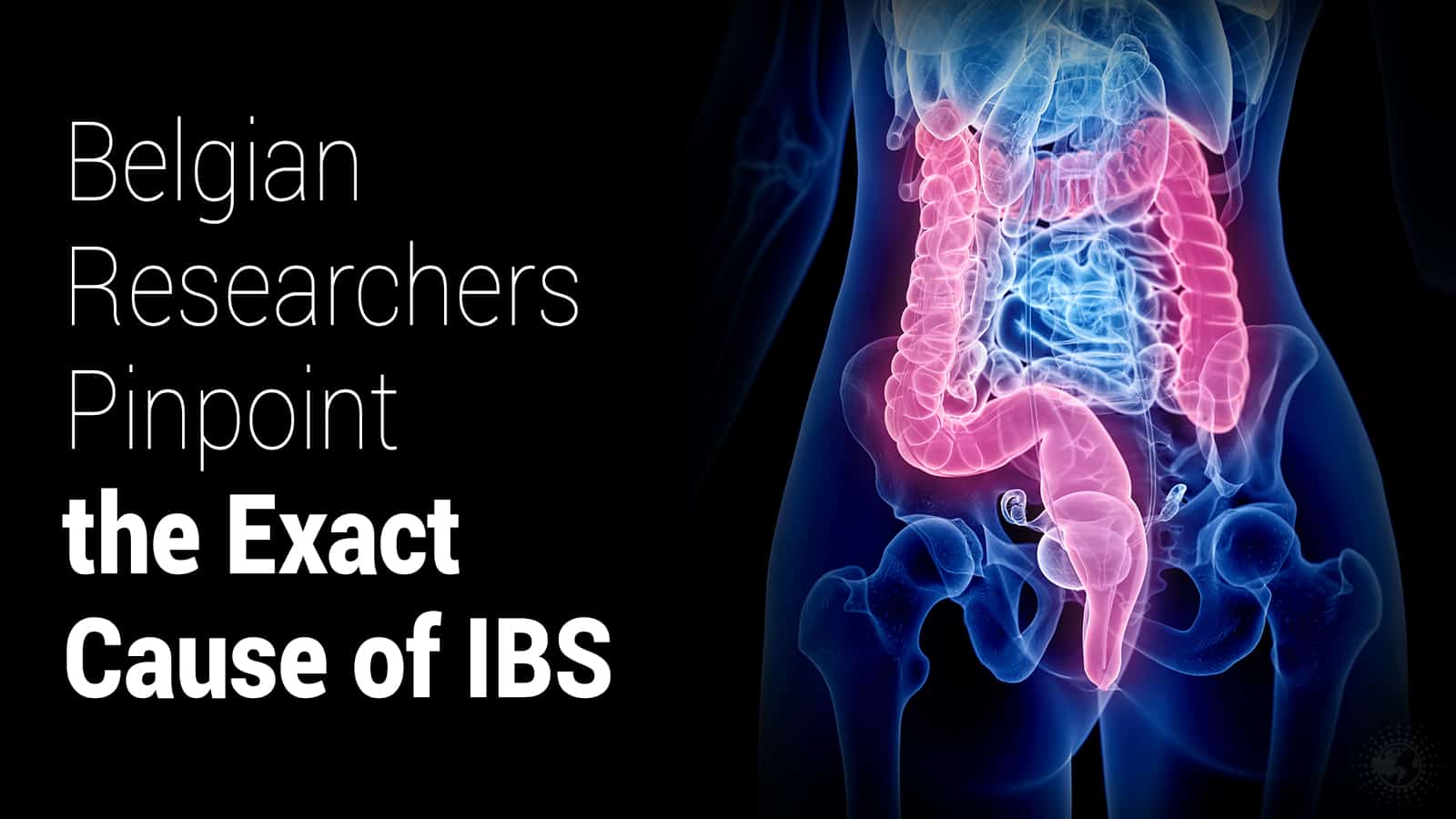Belgian researchers have recently traced the cause of IBS to certain biological mechanisms in the body. The KU Leuven team hopes that their findings will lead to better treatments for IBS and other gastrointestinal disorders.
The study, published in Nature on January 13, 2021, was performed in both mice and humans.
Around 20% of people globally suffer from irritable bowel syndrome (IBS), which causes acute abdominal pain or discomfort following a meal. Other common symptoms of IBS include:
- cramping
- bloating
- gas
- diarrhea, constipation, or both
- loss of appetite
- indigestion
- inability to eliminate bowels
- nausea
What causes irritable bowel syndrome?
 The cause of IBS may include the following:
The cause of IBS may include the following:
- Muscle contractions in the intestines. The intestinal walls have layers of muscle lining them, which contract as food passes through the digestive system. If the contractions last longer and seem more intense than normal, it can cause symptoms like diarrhea or bloating. On the other hand, weak intestinal contractions lead to slow digestion and constipation.
- Overactive nervous system. If the nerves of your digestive tract become imbalanced, you may experience more discomfort after meals. Scientists believe weak signals between the brain and intestines are one cause of IBS. These signals may cause the body to overreact to stages of the digestive process, resulting in abdominal discomfort.
- Severe infection. An infection caused by a bacteria or virus can also lead to IBS. Scientists believe that excess bacteria in the gut is another cause of IBS.
- Childhood trauma. This one may seem surprising, but researchers have found that early life stress can cause symptoms of IBS. Stress seems to negatively affect gut bacteria, which in turn can lead to gastrointestinal issues.
- Gut dysbiosis. In other words, this means an imbalanced gut. When your microbiome becomes unhealthy, it can create problems throughout the body. Changes in bacteria, fungi and viruses within the gut may lead to IBS.
The research from Belgian scientists sheds new light on the cause of IBS
As you can imagine, this disorder can severely impact one’s everyday life. While remedies such as gluten-free diets can help, scientists are still baffled as to why this works. Since patients don’t have allergies to gluten or other foods, researchers believe there’s a deeper biological reason behind it.
“Very often these patients are not taken seriously by physicians, and the lack of an allergic response is used as an argument that this is all in the mind, and that they don’t have a problem with their gut physiology,” says Professor Guy Boeckxstaens, a gastroenterologist at KU Leuven and lead author of the new research. “With these new insights, we provide further evidence that we are dealing with a real disease.”
How histamine plays a role in IBS
The Belgian team identified a mechanism that becomes activated when foods with histamine are consumed. Called mast cells, histamine can cause pain and discomfort in some people. Previous studies by Professor Boeckxstaens and his colleagues found that blocking histamine leads to improvements in people with IBS.
However, in a normally functioning intestine, the immune system doesn’t overreact to foods. So, scientists wanted to pinpoint the mechanism causing the intolerance to histamine. People with IBS frequently report that they start having symptoms after coming down with a gastrointestinal infection like food poisoning. So, scientists decided to study how an infection in the gut might cause an overreactive immune response to a particular food.
They started by infecting mice with a stomach bug and simultaneously feeding them ovalbumin. This is a protein in egg whites that is frequently used in experiments as a model food antigen. Antigens are any molecules that trigger a reaction in the immune system. Once the mice got over the infection, the researchers gave them ovalbumin again to test their immune response.
Results from the study on the cause of IBS
The team found that the ovalbumin by itself triggered a histamine release. This caused digestive intolerance and abdominal pain in the mice. However, the mice that didn’t get an infection or receive ovalbumin did not have this response. The researchers could then pinpoint what events in the immune response connected the ovalbumin to the histamine release.
Scientists found that the infection triggered an immune response only in a specific part of the intestines. In other words, the team didn’t observe more general symptoms typical of a food allergy. Professor Boeckxstaens explains that this finding suggests a spectrum of food-related immune diseases.
“At one end of the spectrum, the immune response to a food antigen is very local, as in IBS. At the other end of the spectrum is a food allergy, comprising a generalized condition of severe mast cell activation, with an impact on breathing, blood pressure, and so on.”
The researchers then wanted to see if people with IBS had the same reaction. The team injected food antigens linked to IBS (gluten, wheat, soy, and cow milk) into the intestinal walls of 12 patients. They found that the antigens triggered a localized response like the one observed in the mice. In healthy volunteers, the team said no reaction took place.
However, since the sample size was so small, more studies will need to be done in the future. So far, though, it seems that the research is promising since earlier clinical trials showed IBS patients improved with antihistaminics. A larger clinical trial of the antihistamine treatment is currently in progress.
“This is further proof that the mechanism we have unraveled has clinical relevance,” Professor Boeckxstaens says.
“But knowing the mechanism that leads to mast cell activation is crucial, and will lead to novel therapies for these patients,” he goes on. “Mast cells release many more compounds and mediators than just histamine, so if you can block the activation of these cells, I believe you will have a much more efficient therapy.”
 Final thoughts: researchers believe histamine release in the intestines is the cause of IBS
Final thoughts: researchers believe histamine release in the intestines is the cause of IBS
In this groundbreaking study, a Belgian research team found that a biological mechanism that triggers histamine release may cause IBS. They also discovered that people are more vulnerable to developing IBS after getting food poisoning or other infections. The team hopes that their research will lead to improved treatments for IBS in the future.


















